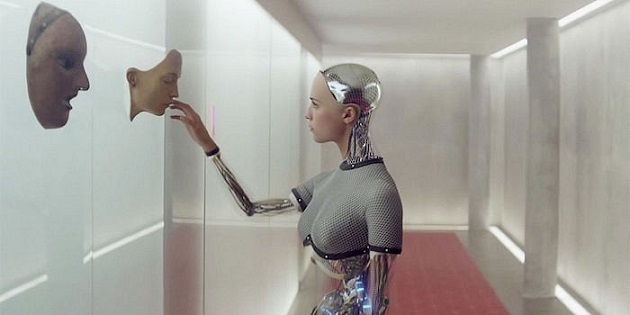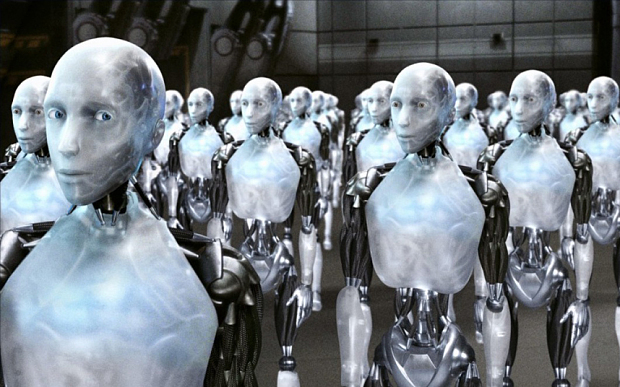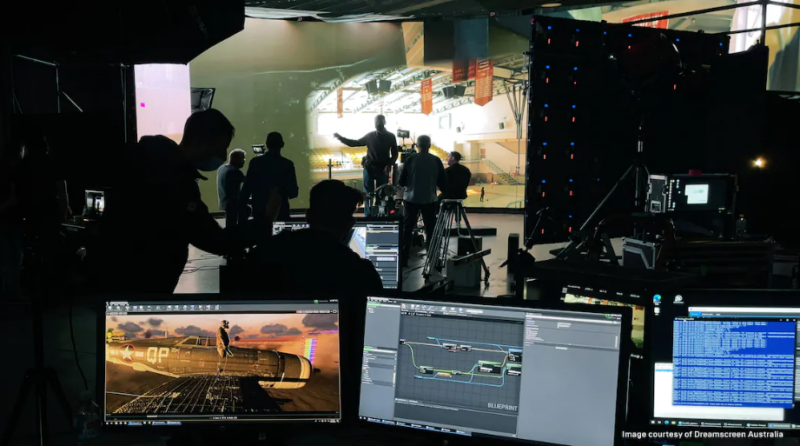The Future Is Already Wreaking Havoc On Us
While I’m currently in the process of writing a blog article on the opening keynote at InfoComm 2015, I decided to also finish working on a blog I had begun prior to the show. It involves the subject matter of a highly popular recently released sci-fi film, and a New York Times article written by the the moderator of the IoT opening keynote discussion. I will soon be publishing the blog article on the opening keynote in terms of a panel discussion which I considered enlightening and important in the AV industry, however for now I will shift focus to the subject highlighted in Nick Bilton’s article Ava of ‘Ex Machina’ Is Just Sci-Fi (for Now).
“Ex Machina,” a 2015 sci-fi thriller is the story of a young programmer at the world’s largest internet company, who wins a competition to spend a week at a private retreat belonging to the reclusive CEO of the company. There he learns that he must participate in a bizarre experiment which involves interacting with the world’s first true artificial intelligence, in the hopes that the programmer can successfully administer a test intended to determine if an A.I.’s personality and self-awareness are equal to or greater than that of a human.
The experiment comes in the form of a female advanced artificial intelligence named Ava, whose emotional intelligence proves more sophisticated–and more deceptive–than the two men could have imagined. Now while this is not meant to be a movie review, the intention of this blog is to tie together certain threads involved in the overall theme here.
Nick Bilton, the moderator for the Opening Keynote: The Internet of Things at InfoComm, is a technology writer/reporter for the New York Times, and I noticed in a search that he writes a weekly column called Disruptions, described as “exploring how technology is shaping our lives.” His article, published on May 20th under the Disruptions column, opens with the following paragraph where he poses the question:
Are technology companies running too fast into the future and creating things that could potentially wreak havoc on humankind?
Bilton asked this after seeing what he referred to as an “enthralling science-fiction film” and he followed this up with a much more intriguing statement concerning what makes “Ex Machina” different from the usual special-effects blockbuster as well as the ethical questions it poses:
Foremost among them is something that most techies don’t seem to want to answer: Who is making sure that all of this innovation does not go drastically wrong?
As those who follow the future of artificial intelligence know, Ray Kurzweil, a computer scientist, inventor and futurist is one who has predicted that robots will reach human levels of intelligence, occurring in 2029. He and others have also determined that by 2040 or 2050, machine intelligence will exceed human intelligence, an event defined as technological singularity – a hypothetical advent of artificial general intelligence where a computer, computer network, or robot would theoretically be capable of redesigning itself or of designing and building computers or robots better than itself.*
Here is a recent London Daily Mail.com article bold headline – an A.I. “warning” of sorts?
Artificial intelligence is a very real threat — and robots could wipe out humanity by ACCIDENT, claims expert
- Dr. Stuart Armstrong says robots will become part of our daily lives, but will become smarter than us and make humans redundant at work
- They will then take over to control economies and healthcare, he predicts
- Machines could deliberately wipe out the human race or do so by accidenly (sic) misinterpreting an instruction, because our language is so subtle
- Dr. Armstrong has called for AI safeguards, a move which has previously been welcomed by Stephen Hawking, Elon Musk and others
While knowing the Daily Mail as the tabloid that it is, as the dangerous headline and predictions are certainly meant to look overly alarming (for various reasons), the claims made by the individual referenced are in certain respects very real. Dr. Stuart Armstrong, a research fellow at the Future of Humanity Institute at Oxford University (whose doctorate is in mathematics), conducts research that includes a centric focus to the risks and possibilities of Artificial Intelligence. In an article Threat from Artificial Intelligence not just Hollywood fantasy it was noted that Dr. Armstrong has predicted a future where machines run by artificial intelligence become so indispensable in human lives they eventually make us redundant and take over. He also claims that this alarming vision could happen as soon as the next few decades.
“Humans steer the future not because we’re the strongest or the fastest, but because we’re the smartest,” Dr. Armstrong exclaimed. “When machines become smarter than humans, we’ll be handing them the steering wheel.”
Dr. Armstrong’s wrote a book published in 2014 Smarter Than Us: The Rise of Machine Intelligence, which addresses these statements and much more. It begins Chapter One – Terminator vs. the AI.
According to Bilton’s article, Alex Garland, Ex-Machina‘s writer and director stated in a phone interview:
- “I have no idea if technology companies are doing anything wrong or not, but they are so powerful, and the work they are doing has such potential for seismic human change of how we live, they have to have oversight.”
- “If you’ve got corporations that are investigating areas that can change fundamental things about the way we live, someone needs to be looking at them.”
Alex Garland’s concerns about unchecked innovations (as Bilton writes) could apply to all kinds of disciplines, including bioengineering, smart homes, self-driving cars and medical nanobots, to name a few. In January, researchers at the University of California San Diego successfully administered acid-powered, zinc-based, self-destructing micromotors inside living mice. Rice University bioengineers in 2014 created a hydrogel that instantly turns from liquid to semisolid at close to body temperature — and then degrades at precisely the right pace. The new material represented a bold step forward in the field of bone tissue engineering.
However as Bilton points out, while such technology breakthroughs are intended to help humanity, they could eventually backfire without the proper oversight.
Notable figures in science and technology have pointed out the dangers of artificial intelligence – theoretical physicist and cosmologist Stephen Hawking has claimed that “the development of full artificial intelligence could spell the end of the human race,” Elon Musk, the chief executive of Tesla and SpaceX, talks about A.I. “potentially being more dangerous than nukes,” and Steve Wozniak, co-founder of Apple, tells us that “computers are going to take over from humans” and that “the future is scary and very bad for people.”
Contrary to these statements, physicist Lawrence Krauss says that while all new technology is frightening, there are many more reasons to welcome machine/artificial consciousness (which includes cognitive robotics) than to fear it.
Can we believe this though after being told by the likes of Hawking, Musk and Wozniak to fear the future of A.I.?
In a final note here, according to the article Threat from Artificial Intelligence… referenced in the blog, Dr. Armstrong envisions machines capable of harnessing such large amounts of computing power and running at speeds unimaginable to the human brain, that they will eventually create global networks with each other – communicating without human interference.
Take a look as well at Artificial Intelligence Machine Gets Testy With Its Programmer, as a computer program using a database of movie scripts was asked again and again by researchers to define morality. It struggles to do so, and the end result is a conversation shut down – by the machine.
And what about smart homes and self-driving cars to go along with drones, big data, cyber hacks and more…?
Look for “Covering InfoComm 2015 – Opening Keynote: The Internet of Things.”
A great video: Ex Machina | Examining Our Fear of Artificial Intelligence — Writer/Director Alex Garland and stars of Ex Machina, Oscar Isaac and Alicia Vikander talk about the inspirations for the film, the relation between A.I. and consciousness and more.
* https://en.wikipedia.org/wiki/Technological_singularity
The Telegraph: Threat from Artificial Intelligence not just Hollywood fantasy.







